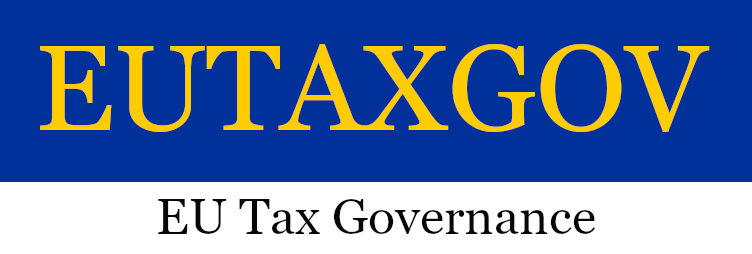By Irma Johanna Mosquera Valderrama
In a recent blog, Peter Hongler stated that “political philosophy should, therefore, play a more decisive role within international tax law as an academic discipline, both in teaching and researching the discipline”. In the same direction, a political philosopher Laurens van Apeldoorn stated when analyzing the article of Miranda Stewart ‘Redistribution between rich and poor countries’ that “if we are to develop a coherent picture of the future of international taxation the perspectives of different academic disciplines—including law, political science, and philosophy—should be included”.
Both authors are right when addressing the importance of interdisciplinary approaches to study international taxation including the OECD-BEPS Project. The Project GLOBTAXGOV benefits from the exchange of ideas between different disciplines mainly political science, taxation, international political economy, international relations and development. When analyzing the content of the BEPS Project, some questions that have been discussed in scholarship are for instance the legitimacy and fairness of the BEPS Project in respect of developing countries, and the relationship between BEPS and the Sustainable Development Goals.
These questions should not only be addressed by tax scholars but also by seeking cooperation with experts in the above-mentioned disciplines. The work carried out in the GLOBTAXGOV benefits from this cooperation.
The forthcoming conference organized by the European Consortium of Political Research ECPR in Hamburg has for the first time a session on the politics of taxation called “Taxation in the 21st Century” . This session has at least 7 panels discussing topics such as: The politics of taxation after the financial crisis; Taxation in Historical Perspective: On the Origins and Evolution of Modern Tax Systems; Taxation in Developing Countries; New Divides in the Politics of Taxation?; International Cooperation Against Tax Evasion and Avoidance; Change and Stability in Global Tax Policy; and Behavioral and Cultural Approaches to Tax Compliance.
In the panel Change and Stability in Global Tax Policy, GLOBTAXGOV will address the standard of good governance in tax matters and its application in respect of third (non-EU) countries. This standard was introduced in 2008 by the ECOFIN Council with a view to tackle tax fraud and evasion. At that time good governance was understood as transparency, exchange of information (on request) and fair tax competition. However, this standard has changed along with international tax developments. The most recent change has taken place in April 2018 when the ECOFIN Council introduced a new standard provision of good governance in the tax area that includes transparency, exchange of information (automatic, on request and spontaneous), fair taxation, and the 4 Minimum Standards against Base Erosion and Profit Shifting (BEPS).
When analyzing this standard is important to analyze the content of the standard from a tax perspective, but also from a political perspective by analyzing the power of the EU to introduce this standard in respect of third (non-EU) countries including developing countries.
After discussing at the EUCROSS conference the way that this standard is presented in aid agreements and strategic partnership agreements. Now, at the ECPR Conference, this standard will be analyzed in light of the rise of the EU as a global regulatory power. Some questions that will be addressed are the role of the EU in respect of third (non-EU) countries, and also the way that the EU is influencing the BEPS Project by also including as part of the standard the 4 BEPS Minimum Standards (Actions 5, 6, 13 and 14).

